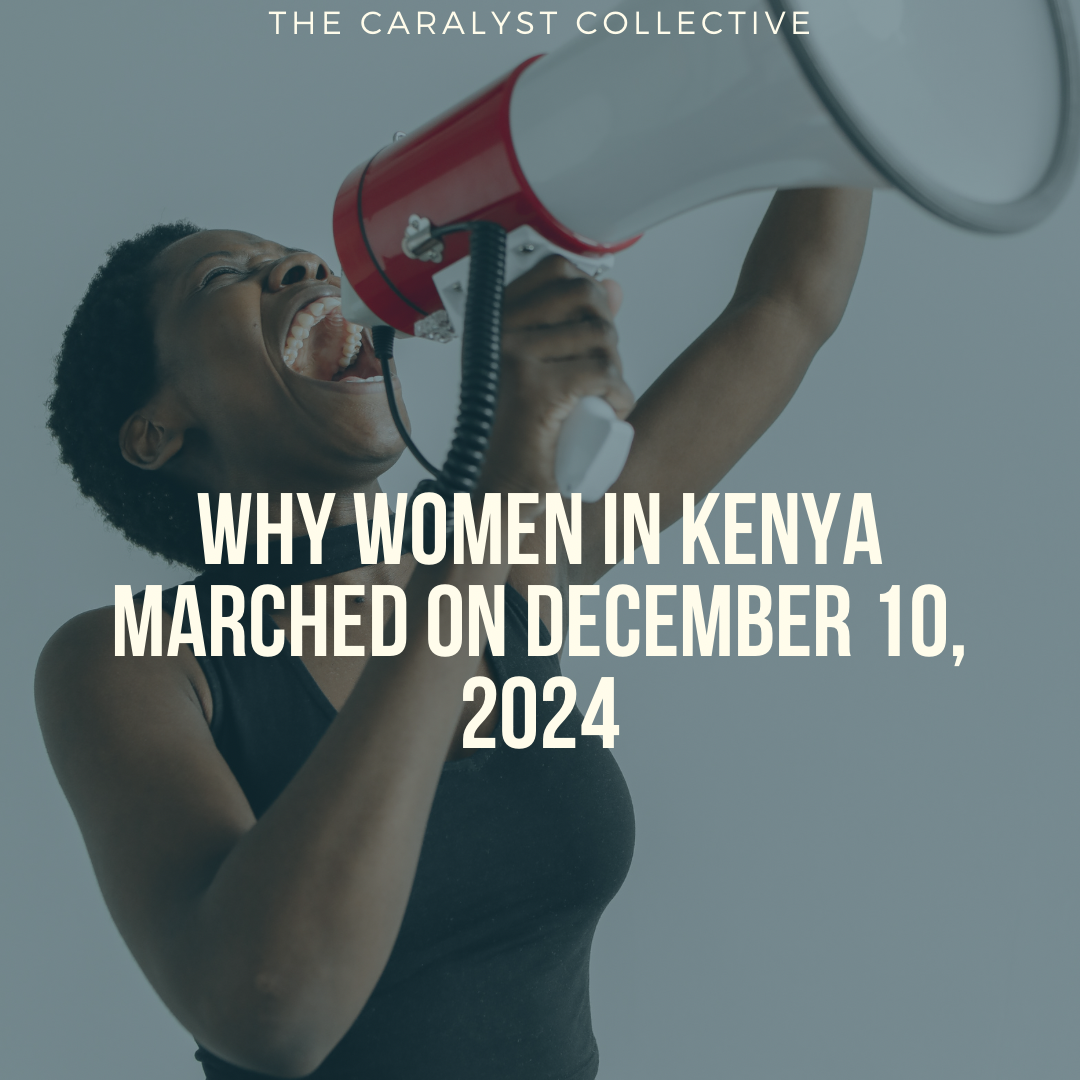Why Women in Kenya Marched on December 10, 2024

On December 10, 2024, thousands of Kenyan women and allies took to the streets in a powerful display of resistance against the alarming rates of femicide and gender-based violence (GBV) in the country. This protest marked one of the largest feminist demonstrations in Kenya's history, with over 20,000 participants rallying for justice, accountability, and systemic change.
The Alarming Context
Kenya has witnessed a troubling rise in femicide and GBV cases in recent years. Reports indicate that over 500 femicides occurred between 2019 and 2023, with numerous cases going unreported due to societal stigma and inadequate legal protections. In 2024 alone, over a dozen high-profile cases, including the murder of women in rented accommodations, sparked public outrage and became the tipping point for this movement.
Key Demands of the Protesters
The marchers presented a clear set of demands aimed at addressing the systemic failures contributing to GBV:
- Justice for Victims: Protesters called for expedited legal processes to prosecute perpetrators of femicide and GBV.
- Legislative Reform: Petitions were submitted to national and county assemblies to strengthen laws protecting women.
- Resource Allocation: Calls were made for more judges, better-funded courts, and trauma-informed handling of GBV cases.
- Public Accountability: Activists demanded accountability from political leaders, particularly female representatives, for perceived inaction on GBV issues.
Government and Institutional Responses
The protests prompted immediate commitments from key institutions:
- The Chief Justice of Kenya announced plans to establish specialized courts for GBV cases, designed to be trauma-sensitive.
- A special task force was formed to investigate femicide cases more effectively.
- A national femicide hotline was launched to provide immediate support to at-risk women.
Broader Implications
The December 10 march was not just about addressing femicide; it also highlighted the broader issues of economic inequality, inadequate healthcare, and systemic sexism that exacerbate GBV in Kenya. It served as a rallying cry for civil society organizations, feminist movements, and international allies to amplify their efforts in combating these issues.
Sources for Further Reading
- Africanews: Insights into the protests and their societal impact.
- ForumCiv: Detailed report on the collective efforts to combat femicide.
- Human Rights Watch: Background on GBV and legal reforms in Kenya.
This demonstration serves as a reminder of the power of collective action in the fight for gender equality and justice, urging continued vigilance and advocacy.
---
To support The Catalyst Collective, you can make a direct deposit using the banking details below:
- Bank Name: Stanbic Bank Zambia
- Account Name: Carol Phiri
- Account Number: 9130006654278
---
Every contribution matters and brings us one step closer to achieving our mission. Thank you for believing in our vision and for standing with us as we create positive change. Let’s build a better tomorrow—together!
Comments
Post a Comment